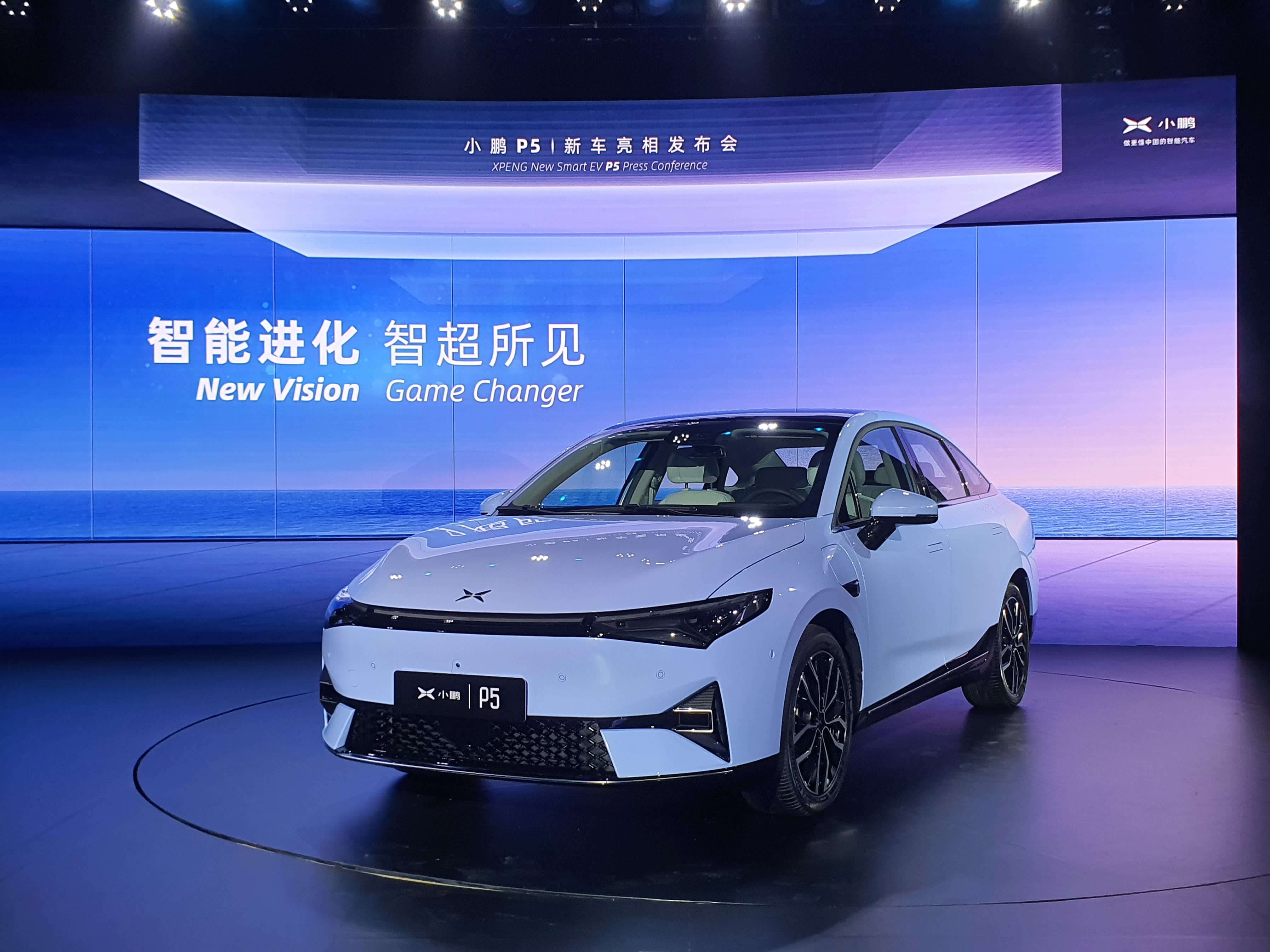Xpeng Motors launches the P5 sedan at an event in Guangzhou, China on April 14, 2021. The P5 is Xpeng’s third production model and features so-called Lidar technology.
Arjun Kharpal | CNBC
GUANGZHOU, China — Chinese electric carmaker Xpeng Inc. has priced its new P5 sedan as low as 160,000 yuan ($24,694) days after Tesla launched a cheaper version of its Model Y sports utility vehicle
The aggressive pricing from Xpeng comes as China’s electric vehicle market continues to heat up with an increasing number of players.
The P5 — Xpeng’s third production model and second sedan after the P7 — was launched earlier this year. There are six different versions of the car with different features, and prices range from 160,000 yuan to 230,000 yuan.
Xpeng’s P7 sedan starts from 229,900 yuan after subsidies. Tesla’s Model 3 starts from 250,900 yuan in China.
The Guangzhou-headquartered company is using Lidar, or light detection and ranging technology, in the P5 to boost some of its semi-autonomous driving features. Lidar uses laser beams to map out the surrounding environment, and measure the distance of objects to help the car determine obstacles in its pathway.
Four out of the six P5 models come fitted with Lidar and Xpeng’s advanced driver-assistance system (ADAS) called XPILOT.
Xpeng is one of a number of players in China’s electric vehicle industry which spans from established automakers through to start-ups.
Tesla, which has faced weeks of bad press in China, introduced a cheaper version of its Model Y SUV with a shorter driving range this month, which starts at 276,000 yuan after subsidies.
Xpeng delivered 17,398 vehicles in the second quarter of the year, a 439% increase year-over-year. The company will be hoping the P5 can help it to continue to grow sales in a new price segment.
This month, Xpeng, which is already listed in New York, carried out a so-called dual primary listing in Hong Kong and raised 14.02 billion Hong Kong dollars ($1.8 billion).

